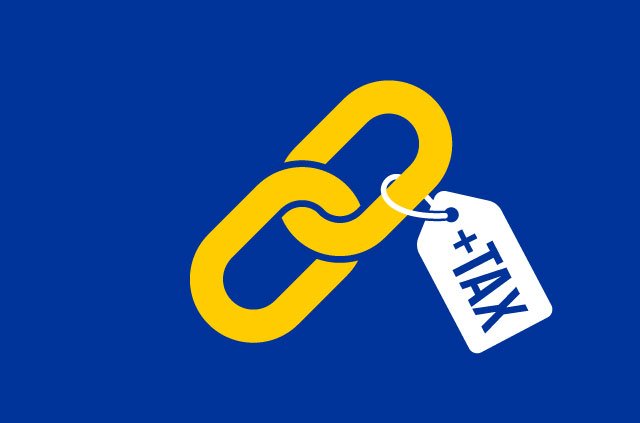Will the EU's "link tax" destroy Europe's internet?
Last week, the European Parliament voted for the infamous "link tax".
This is a so-called copyright law that is so extreme that even linking to a site with a line or two of content as a snippet is deemed to be subject to copyright - with the person linking having to pay a fee to the owner of the link.

This madness was dreamed up by the European Commission, after being lobbied by the giant German publisher Axel Springer. It's aimed mainly at Google, but also Facebook and Twitter. These publishers want a cut of the US tech company's revenue. Never mind that Google actually spends money indexing content and listing it on their site for free.
So - what will be the likely outcome of the link tax? It's worth noting that this is the second time Axel Springer has tried this. They persuaded German legislators to pass a law saying that if Google news (and other online aggregators) linked to newspaper content, they had to pay a fee. Google simply delisted content that did not allow them free access. Axel Springer held out for two weeks, before caving. Their traffic had plummetted so much they were losing money.
They're now trying this on a Europe-wide scale, reasoning that Google wouldn't delist them all because they'd lose too much money across the EU.
The only problem is the UK is leaving the EU and the British are Google's main source of revenue. It is noticeable that despite Brexit, Google has increased investment in the UK and is lobbying the govt hard.
I would not be surprised if after Brexit, the British govt repealed the EU link tax, allowing the search engines (and Facebook, Twitter and other social media) to function as normal in the UK. At that point, Google will probably announce a restricted service for unprofitable EU markets (delisting content from European news sites and merely featuring American, British and anglosphere content) and then sitting on their hands to see the reaction.
If the European Parliament imagines a European competitor will emerge to fill Google's shoes, they need to think again. It is expensive to index the web and serve up a search engine. If it was easy a competitor would have emerged already. Add in the expense of a link that, and the EU has made it more difficult* for a Eurpopean competitor to emerge. Europe may end up like China, with a degraded internet, with all the implications that involves for easy research and information sharing.
To the question in your title, my Magic 8-Ball says:
Hi! I'm a bot, and this answer was posted automatically. Check this post out for more information.
Chic article. I learned a lot of new things. I signed up and voted. I will be glad to mutual subscription))))
You see that light at the end of the tunnel? That's the decentralized Web 3.0!